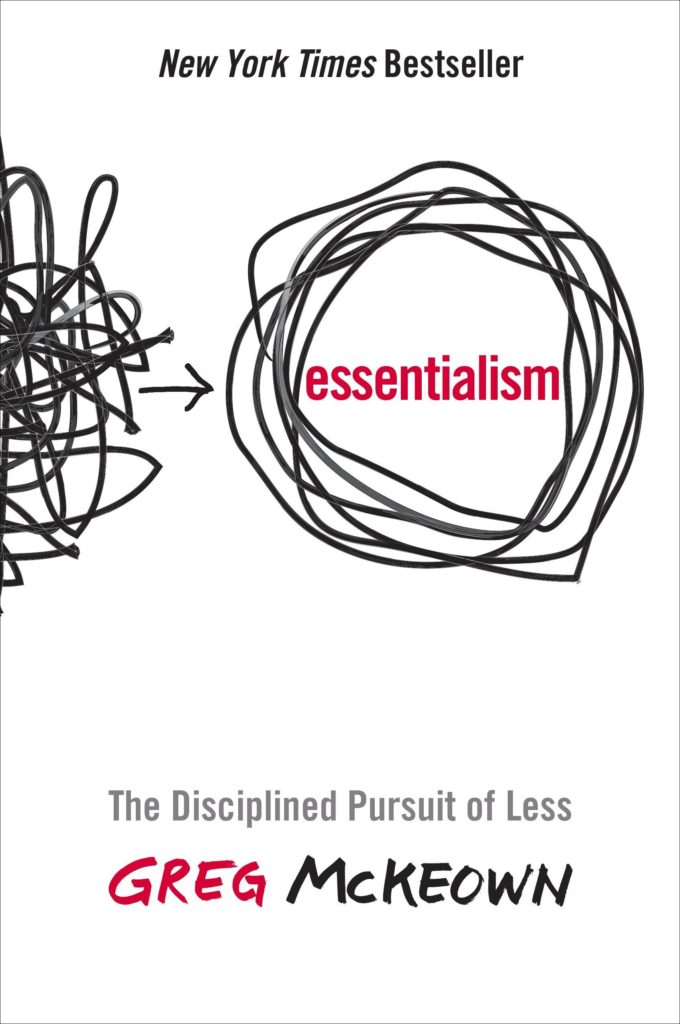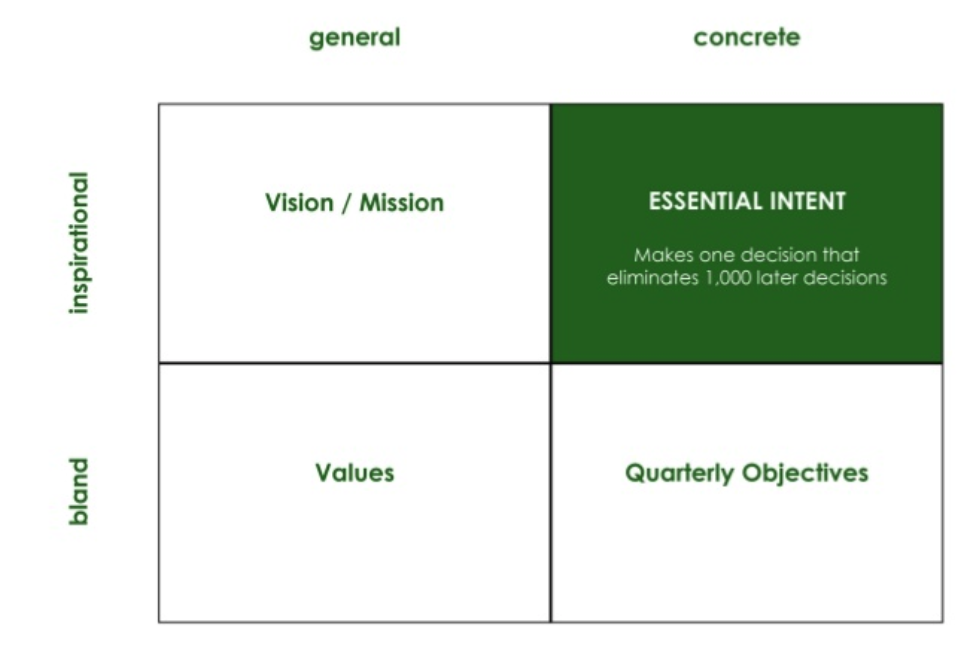
My Rating: 10/10
Buy it on Amazon here
Essentialism is the pursuit of less but better. In this pursuit you find out what tasks will achieve maximum results if you focus your time on those things. Unfortunately there are lots of outside pressures that try to dissuade us from this purpose. The purpose of this book is to teach you how to achieve more by doing less.
Overview of Essentialism
There are three basic steps to becoming an essentialist:
- Explore and Evaluate
- Eliminate
- Execute
The author, Greg McKeown, starts with a simple example of cleaning out your closet. First, you would look through all of your clothing and decide which ones you wanted to keep and which ones you want to throw out (Explore and Evaluate). Then you throw out/donate the ones you have decided upon (Eliminate). And last, you create a system so that your closet doesn’t become full and messy again (Execute).
The power of choice. You have the power to choose for yourself. If you surrender this power, someone else will make the choice for you and fill your life with things you don’t necessarily want to do.
Discern. Essentialists focus on the vital few. By doing so they achieve more by doing less. The Pareto principle is a great example of focusing on the vital few.
Tradeoffs. Every decision has tradeoffs. When you make a decision you have to give up other things to continue with that decision. Herb Keller Co-Founder and CEO of Southwest is a great example of trade offs. Southwest chose to focus on becoming the low fare airline by getting rid of fancy amenities aka making trade offs.
Explore
Non-essentialists think I can do everything, whereas essentialists think I can do a few things very well. Essentialists look at all of the options they have and choose the ones that will have the largest impact. To do this you need to create time and space to think about your circumstances and your options and if you are doing the right things.
See the big picture. Figure out the why of doing something. This is similar to lead creation of journalism where they figure out what is important to people reading it.
Get out in the field. Go and actually see what is going on so you can get the correct details that someone may have missed.
Play. Playing is important in leaning, creativity, critical thinking and so many other areas. Playing is essential to explore by helping people learn how to explore.
Sleep – Protect the asset. Getting 8 hours of sleep will boost your productivity throughout the day. Do not neglect it.
Select
Use explicit selective criteria when making decisions on what you will focus on. Make a scale and if a choice isn’t 90% on that scale then do not choose it. Explicit means it is direct and leaves no room for uncertainty.
When presented with an opportunity:
- Write down the opportunity
- Create 3 basic criteria that it would need to pass to be an essential opportunity
- If it passes, create 3 more intense criteria and see if it passes at least 2 of the 3
Eliminate
Clarify.When individuals or teams do not have clarity or purpose they exhibit one or both of the following patters
- Playing politics: always trying to show that you are better than a colleague because they are not sure what is required to win. This does not lead you to create much success.
- It’s all good which is bad: each individual works on their own interests. Or individuals pursue multiple different pursuits.
Essential intent. A very clear mission statement that is meaningful, measurable, and inspiring. Think of 7 habits of highly successful people and the mission statements that were created in there.

Dare: the power of a graceful no. With clarity you are able to say no to other opportunities that aren’t in line with your essential intent. Aka not giving in to peer pressure.
Uncommit. Many times you commit to something and then it would be better to leave than to continue the project. However there are some biases that make us continue.
- Sunk cost bias: when you continuing doing something only because you have invested a lot of time and money into it.
- Status quo bias: when you continue doing something because “that is how it has always been done”
- To escape these biases:
- Ask yourself “Would I begin this project knowing what I know now?”
- Consult a neutral third party unaffected by the sunk costs and talk to them about your predicament
Edit. Film editing is the art of only keeping the essentials in the film to make it better. We can also edit our life through the same methods
- Cutting: eliminating distractions
- Condensing: eliminating meaningless activities and keeping the essential ones
- Making things right: compare our activities to our real intent
- Editing less: leaving things in that are working great
Limits. When we set boundaries we are actually freeing ourselves by keeping the good in and the bad out. The example is used of the parents taking on all of their child’s problems from the book Boundaries by Henry cloud. Afterwards the metaphor of watering other peoples lawns is used.
Execute
Buffers. The future is unpredictable and therefore you need safety nets aka buffers in place to avoid those problems. These buffers can be financial, time, processes, etc.
Subtract.This concept is based on the theory of constraints as described in “The Goal” by Eliyahu Goldratt. The theory basically states that you can improve your output if you focus on removing your constraints as opposed to ramping up input/production. By removing your constraint you are getting more output by doing less. To do this:
- Clarify your essential intent
- Identify the constraint
- Remove the constraint
Progress. The best way to achieve large tasks is through small wins. As you see the progress you make in your life you maintain motivation to continue in the task.
Flow. Creating routines for essential things can really create a positive difference in your life. However, you may also have poor nonessential routines that need to be uprooted. To do so focus on the cues and rewards and to figure out what triggers your bad habits and then use those to create good ones. Another good routine is to start with the most difficult things first.
Focus. An essentialist realizes that you can only act in the present and therefore focuses on the here and now to achieve great things. Continually ask yourself “What is essential?” And “What is most important now?”
Be. There are two ways to try to live the essential life:
- Add essentialism doctrine to your already overstuffed life
- Be an essentialist
As you become an essentialist you can accomplish big singular things instead of tons of trivial things, you can live a life of purpose.
Appendix on being an essentialist leader
- Be very selective in your hiring
- Be very clear by clarifying the essential intent
- Make very well defined roles and goals for each team member
- Communicate very bluntly and clear
- Follow up with team members